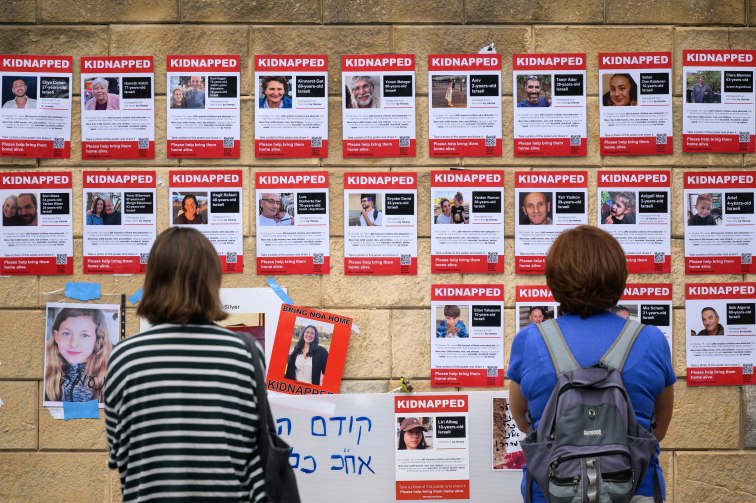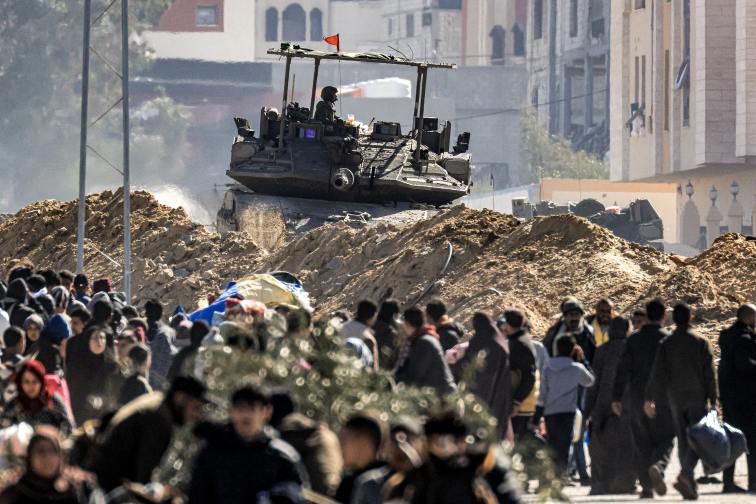A person is carried on a stretcher outside American University of Beirut Medical Center (AUBMC) as people, including Hezbollah fighters and medics, were wounded and killed when the pagers they use to communicate exploded across Lebanon, according to a security source, in Beirut, Lebanon September 17, 2024. (REUTERS/Mohamed Azakir)
BEIRUT (Reuters) - Israel's Mossad spy agency planted a small amount of explosives inside 5000 Taiwan-made pagers ordered by Lebanese group Hezbollah months before Tuesday's detonations, a senior Lebanese security source and another source told Reuters.
The details shed light on an unprecedented Hezbollah security breach that saw thousands of pagers detonate across Lebanon, killing nine people and wounding nearly 3,000 others, including the group's fighters and Iran's envoy to Beirut.
Iran-backed Hezbollah has vowed to retaliate against Israel, whose military declined to comment on the blasts.
The plot appears to have been many months in the making, several sources told Reuters.
The senior Lebanese security source said the group had ordered 5,000 beepers made by Taiwan-based Gold Apollo, which several sources say were brought into the country in the spring.
The senior Lebanese security source identified a photograph of the model of the pager, an AP924, which like other pagers wirelessly receive and display text messages but cannot make telephone calls.
Hezbollah fighters have been using pagers as a low-tech means of communication in an attempt to evade Israeli location-tracking, two sources familiar with the group's operations told Reuters this year.
But the senior Lebanese source said the devices had been modified by Israel's spy service "at the production level."
"The Mossad injected a board inside of the device that has explosive material that receives a code. It's very hard to detect it through any means. Even with any device or scanner," the source said.
The source said 3,000 of the pagers exploded when a coded message was sent to them, simultaneously activating the explosives.
Another security source told Reuters that up to three grams of explosives were hidden in the new pagers and had gone "undetected" by Hezbollah for months.
Neither Israel nor Gold Apollo immediately responded to Reuters requests for comment.
Images of destroyed pagers analyzed by Reuters showed a format and stickers on the back that were consistent with pagers made by Gold Apollo, based in Taipei.
Hezbollah was reeling from the attack, which left fighters and others bloodied, hospitalised or dead. One Hezbollah official, speaking on condition of anonymity, said the detonation was the group's "biggest security breach" since the Gaza conflict between Israel and Hezbollah ally Hamas erupted on Oct. 7.
"This would easily be the biggest counterintelligence failure that Hezbollah has had in decades," said Jonathan Panikoff, the U.S. government's former deputy national intelligence officer on the Middle East.
(Reporting by Laila Bassam and Maya Gebeily in Beirut; Writing by Phil Stewart; Editing by Don Durfee and Stephen Coates)










News magazine bootstrap themes!
I like this themes, fast loading and look profesional
Thank you Carlos!
You're welcome!
Please support me with give positive rating!
Yes Sure!